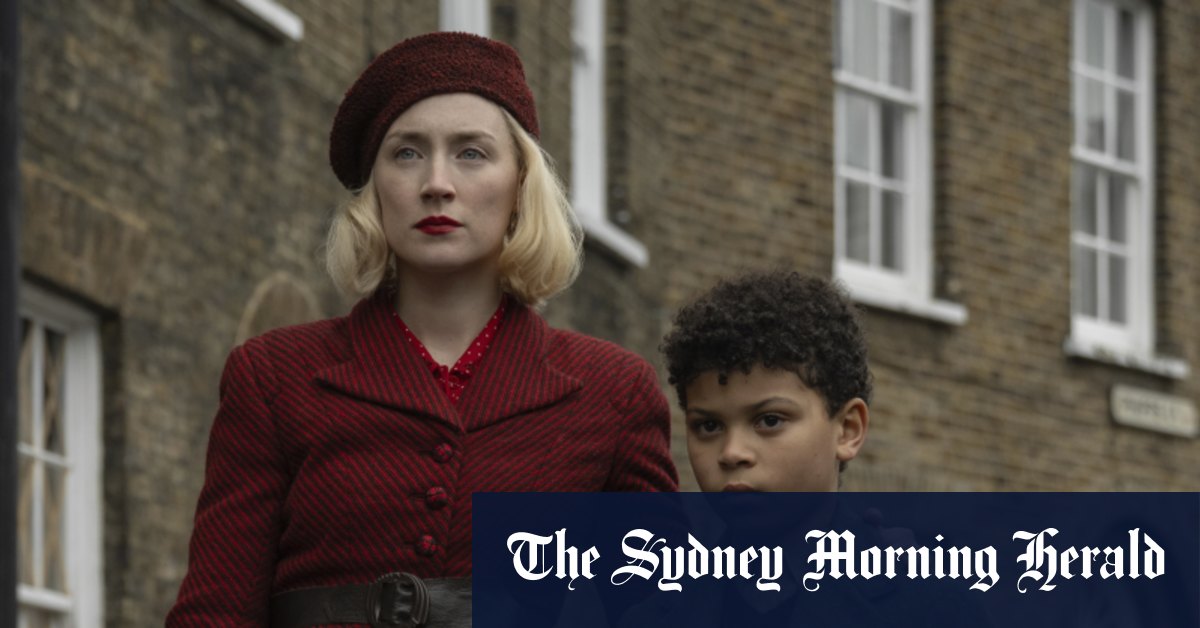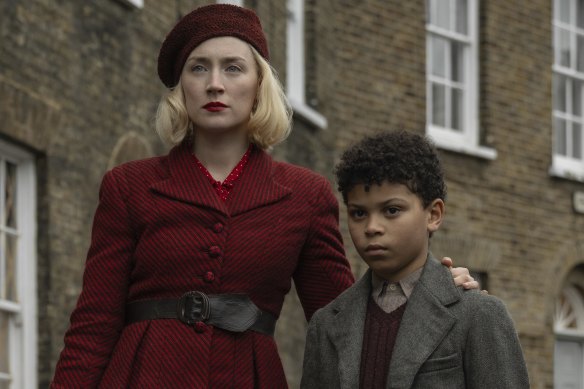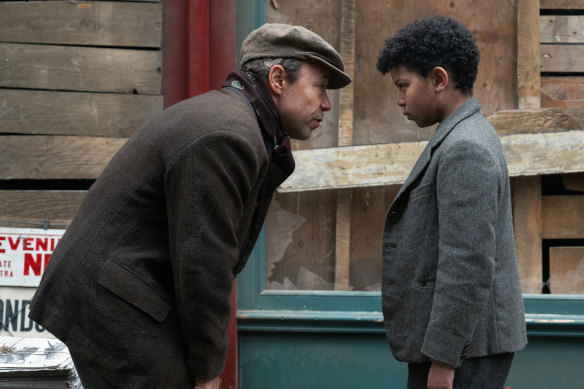
BLITZ ★★★
(M) 121 minutes
At first glance Blitz is the least Steve McQueen-like film that Steve McQueen has made. Primarily told from a child’s perspective, as a young boy seeking his mother treks across and under London, battered by nightly German bombings during World War II, it has a measure of wide-eyed discovery, even wonder. Those are not the qualities you associate with an Academy Award-winning filmmaker whose movies are immersed in the lives of individuals pushed to their breaking point by unjust systems.

Saoirse Ronan plays Rita, mother to George, played by Elliott Heffernan, in the World War II drama Blitz.
A tortured slave on an Antebellum plantation (12 Years a Slave), or a bereaved wife handling violent extortion (Widows), are seemingly a long way from nine-year-old George Hanway (Elliott Heffernan). Living in London’s East End with his loving mother, Rita (Saoirse Ronan), and supportive maternal grandfather, Gerald (musician Paul Weller), the biracial boy, whose father is absent, has the support he needs to rise above the racist slights barely obscured in the community outside.
But after a near-miss during a bombing raid in September 1940, Rita reluctantly accepts that George must be evacuated, like so many of the city’s children, to the countryside. As furious at a heartbroken Rita as he is on departure, George soon brazenly absconds to return to her – of the numerous holds, intimate or vast, exerted in McQueen’s film, none is as strong as the maternal bond.
By following George on his journey, while interspersing the experiences of Rita, McQueen as writer and director offers a kaleidoscopic view of a city under a siege, capturing just how its citizens react. It is a revisionist take that acknowledges the collective defiance to fascism but doesn’t ignore the flaws that also achieve a footing. George encounters a saintly air raid warden (Benjamin Clementine), but also looters (Stephen Graham and Kathy Burke) who direct him to rob corpses.

Stephen Graham, who plays a looter, and Heffernan.
McQueen shows Rita and her fellow workers at a munition factory protesting the lack of bomb shelters, while later there is an interlude, told with documentary-like detail, at a community hub run by socialists. The narrative jumps from one incident to the next and develops an episodic feel that doesn’t quite add up. Heffernan gives a wonderfully naturalistic performance, marked by risk and courage, but the gifted Ronan has surprisingly little to work with. Rita barely leaves a mark.
It’s not a great film but nor is it predictable. McQueen’s compositions, whether it’s a flashback of exuberant music and dancing or a moment of fixed stillness he shatters with chaos, are the distinct essence of his technique; Hans Zimmer’s electronic score bleeds into the air raid sirens and whirring bombs. History, in McQueen’s eyes, is brutal and complex, even with the “good” victors writing it. Invoking King and country doesn’t cut it.



